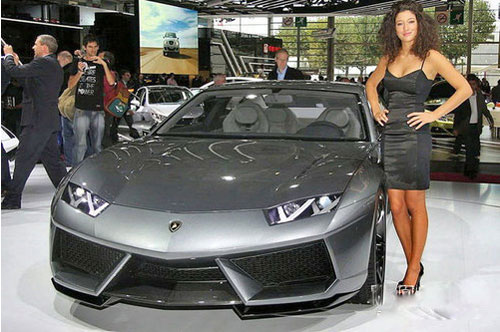 The popularity of the Brazilian automotive market continues to rise, and it seems that the independent brands in China have long been expected. Since 2008, Chinese self-owned brand cars have entered the Brazilian market one after another. With high cost performance and adaptability, Chinese auto products have won the favor of Brazilian low- and middle-income groups and are gradually becoming an important role in this market. As the Brazilian auto market continues to expand, several Chinese manufacturers, including Jianghuai, Lifan, Great Wall, and Changan, announced that they will increase investment in the Brazilian market.
The popularity of the Brazilian automotive market continues to rise, and it seems that the independent brands in China have long been expected. Since 2008, Chinese self-owned brand cars have entered the Brazilian market one after another. With high cost performance and adaptability, Chinese auto products have won the favor of Brazilian low- and middle-income groups and are gradually becoming an important role in this market. As the Brazilian auto market continues to expand, several Chinese manufacturers, including Jianghuai, Lifan, Great Wall, and Changan, announced that they will increase investment in the Brazilian market. Districar, a famous car dealership in Brazil, announced on the 23rd that since the beginning of next year, Chery, JAC, Hafei and Jinbei have officially sold Chinese Changan and Haima cars on the Brazilian market, among which Changan has invested and set up factories in Brazil. plan.
The reporter understands that Great Wall Motors, which is currently participating in the Sao Paulo Auto Show, is also planning to officially launch sales in the Brazilian market in the second half of 2013, and plans to invest and build factories locally to accelerate the development of the Brazilian market. In a recent interview with this newspaper, Li Gang, vice president of Lifan Industry (Group) Co., Ltd. and general manager of the Import and Export Co., Ltd., said that Lifan Motors has spent US$30 million to complete the acquisition of Besiney Uruguay, and after completion of the acquisition, Lifan will New factories are set up in Uruguay and Brazil, and it is expected that they will be put into production in 2014. The production capacity will reach an annual output of 10,000 vehicles. The vehicles produced will be sold in markets such as Brazil, Argentina and Venezuela.
The industry predicts that by 2016, Brazil will become the third largest auto market in the world after China and the United States. In the future, China’s own brands will hopefully achieve greater growth in this segment of the market.
Relevant statistics show that as of 2011, the proportion of Chinese cars has increased from the previous 16% to nearly 25%. Since last year, Brazil has become the fastest growing market for domestic self-owned brands. In 2011, Brazil sold 3.6 million vehicles, ranking fifth in the world, behind China, the United States, Europe and Japan. Among them, JAC and Chery’s sales in Brazil last year reached 23,700 and 21,700 respectively, ranking 14th and 15th in local auto brand sales rankings.
At present, Chery’s factory in Brazil has started construction and plans to put into production next year. JAC also announced on October 7 that it will invest 900 million reals (about 450 million U.S. dollars) to build the first factory in Brazil. The new plant is expected to It will be put into production in the second half of 2014, with an annual production capacity of 100,000 vehicles.
It is worth noting that while Chinese autos are competing to enter the Brazilian market, local investment policies and exchange rate risks also affect these ambitious “outsidersâ€.
In April this year, the Brazilian government announced a new automobile industry policy to protect domestic auto manufacturing industry and imposed a 30% industrial product tax on imported automobiles. This auto industry policy has enabled JAC's sales in Brazil to drop sharply from the previous monthly sales of 3,000 vehicles to only 1,800 per month. For this reason, JAC once announced its plan to invest in Brazil to build factories.
However, on October 7th the Brazilian government announced in the new automobile industry policy implementation details that as long as more than 65% of car parts are produced in Brazil and other countries of the Common Market of South America (Argentina, Uruguay and Paraguay), they can enjoy tax refunds. / Exemption.
On that day, Jianghuai Automobile announced that it plans to restart the plant.
“We have been making full investigations and preparations for entering the Brazilian market in recent years, including market research, vehicle development and certification, dealer selection, etc.†The relevant person in charge of Great Wall Motor also stated that although in the Brazilian market, Chery and JAC is lagging behind, but in order to achieve the goal of “entering and taking rootâ€, the Great Wall is very cautious about the timing of entering the Brazilian market. The debut of the Sao Paulo Auto Show is a prelude to the Great Wall entering the Brazilian market. Great Wall Motor will officially enter the Brazilian market in the second half of 2013 to achieve sales. In addition, the Great Wall has planned to invest and build factories directly in Brazil to “avoid†obstacles to high tariffs, but the specific timetable has not been disclosed.
Bicycle Spare Parts, Mudguard Accessories, Wholesale Bicycle Parts
NingBo Yinzhou Yinxin Aluminum Co.,Ltd , http://www.cnyinxin.cn